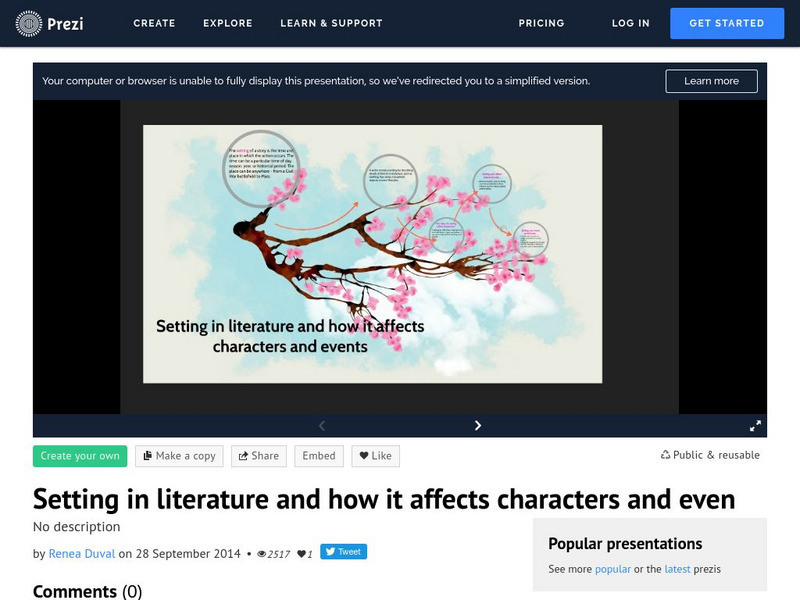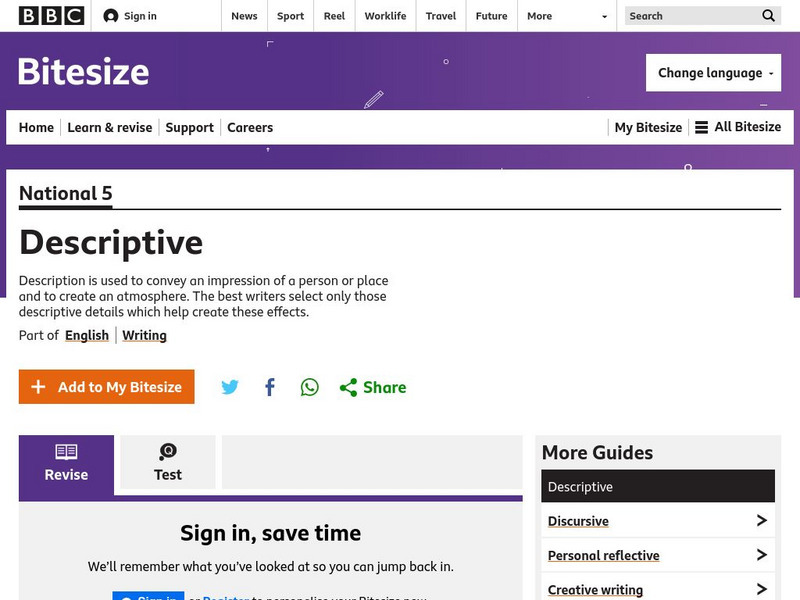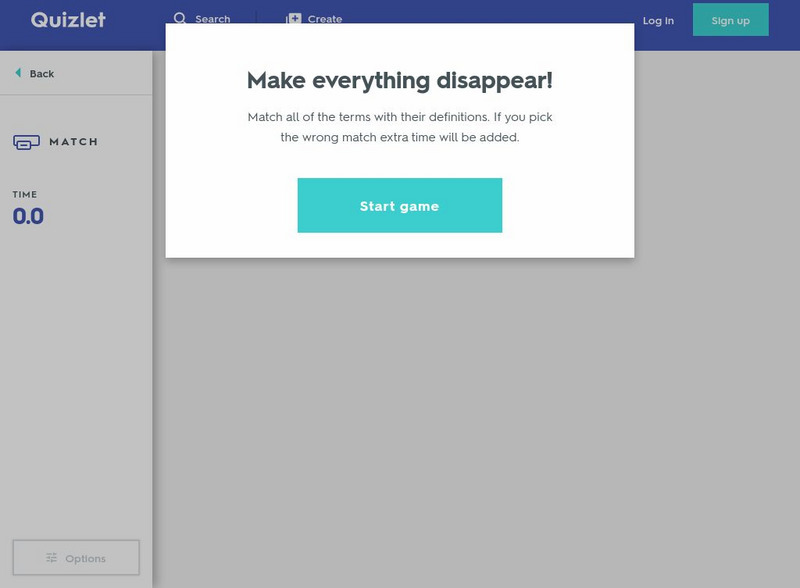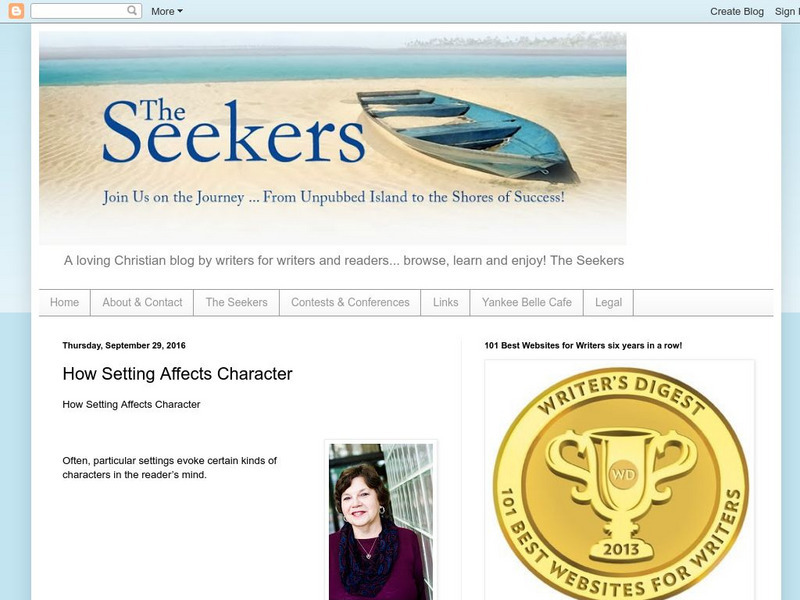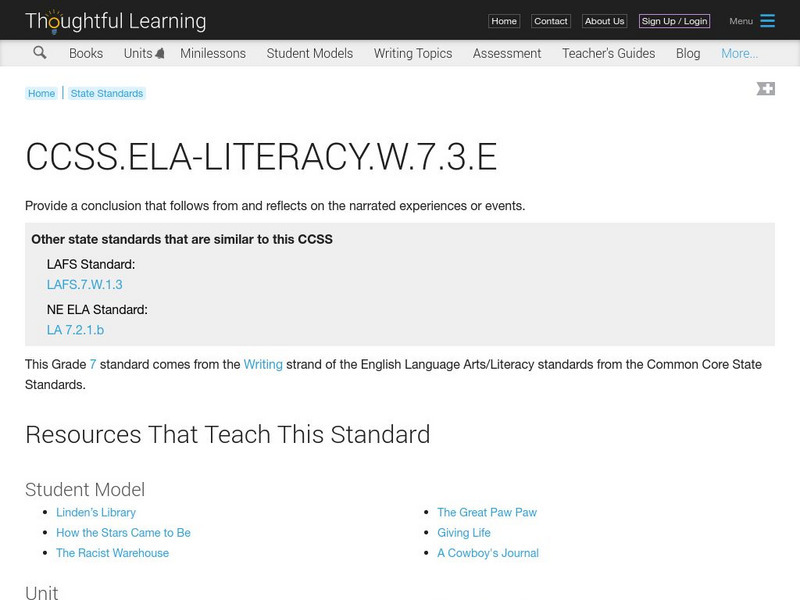Hi, what do you want to do?
Houghton Mifflin Harcourt
Holt, Rinehart and Winston: Elements of Literature: Imagery Chart [Pdf]
A short graphic organizer for students in studying the literary element of imagery. Includes a definition and chart with five sections with examples, one for each of the senses.
Houghton Mifflin Harcourt
Holt, Rinehart and Winston: Elements of Literature: Analyzing a Myth [Pdf]
A brief worksheet/organizer in which students can analyze the content of a given mythological story. Includes five questions and space for students answers and analysis.
Houghton Mifflin Harcourt
Holt, Rinehart and Winston: Elements of Literature: Analyzing Point of View
A resource for students in analyzing the point of view for a given piece of literature. Provides a short worksheet and important questions.
Houghton Mifflin Harcourt
Holt, Rinehart and Winston: Elements of Literature: The Short Story [Pdf]
A short group of exercises for students concerning the elements of a short story. Allows students to examine the major story elements, then apply those elements to a given piece of literature.
Houghton Mifflin Harcourt
Holt, Rinehart and Winston: Elements of Literature: Determining Methods of Characterization [Pdf]
A brief organizer in which students can document how a character in literature is presented, through either direct or indirect characterization. Provides labels, examples, and sections for textual support.
Sophia Learning
Sophia: Analyzing Characterization
This lesson introduces the elements of character analysis and uses Poe's "Tell Tale Heart" for an example. RL.9-10.3 Analyzing Characters
Fun Trivia
Fun Trivia: The Four Types of Writing Trivia Quiz
A fifteen-question quiz in which the reader identifies a type of writing for each situation: argumentation, exposition, narrative, or description. Correct answers are displayed once answers are submitted.
TES Global
Blendspace: Interpreting Literature Terms
A fourteen-part learning module on literary terms including links to text, videos, word lists and images on literary terms such as plot, setting, character, point of view, style, theme, and more.
TES Global
Blendspace: Literary Elements
A six-part learning module with links to videos and graphic organizers on plot and plot elements.
Other
Prezi: Writing a Summary of Nonfiction
Writing a summary is an excellent way for students to demonstrate their understanding of nonfiction text. This slideshow explains what makes a good summary and delves into the four basic rules for writing a summary of nonfiction text.
Other
Prezi: Perspective vs Point of View
Learn how to tell the difference between perspective and point of view by viewing this slideshow.
ClassFlow
Class Flow: Spelling and Writing
[Free Registration/Login Required] Students proofread and correct mistakes in a writing piece, and then apply the writing process to create a tall tale story. Additionally, this lesson helps students understand the purposes and elements...
ClassFlow
Class Flow: Leads
[Free Registration/Login Required] Students will learn about different types of leads for stories. This interactive flipchart has examples of leads, Activote assessment, and activities for students to work on independently or in groups....
Can Teach
Can Teach: Examining a Character's Personalities
In this lesson plan students will be able to understand the different personalities of a character by examining how they act when in contact with other characters. Lesson plan indicated for 4th grade and above.
Can Teach
Can Teach: Introduction to Character Traits
In this lesson plan students will better understand what and how to generate the traits of a character. Lesson plan indicated for 4th grade and above.
Houghton Mifflin Harcourt
Holt, Rinehart and Winston: Elements of Literature: Historical/biographical Analysis Chart [Pdf]
A short graphic organizer which allows students to assess the historical and biographical influence on a piece of literature.
Houghton Mifflin Harcourt
Holt, Rinehart and Winston: Elements of Literature: Evaluating Character and Plot in Literature [Pdf]
A brief graphic organizer which allows students to evaluate the literary elements of plot and character in a given piece of literature. Also includes a section which requires textual support. PDF (requires Adobe Reader).
Other
Prezi: Setting in Literature and How It Affects Characters and Events
A slideshow describing the elements of plot as well as the importance of dialogue as it interacts with different plot elements.
Houghton Mifflin Harcourt
Holt, Rinehart and Winston: Worksheet: Analyzing Nonfiction [Pdf]
Use this graphic organizer to analyze the elements of nonfiction and how the ideas interact.
BBC
Bbc Bitesize Revision: Observation
As part of a revision and writing section of BBC Bitesize, this site goes over several tips of general advice to keep in mind when writing about observations (as part of descriptive writing).
BBC
Bbc Bitesize Revision: Describing People
As part of a revision and writing section of BBC Bitesize focusing on specific forms of writing, this site discusses describing people as a type of descriptive writing.
Quizlet
Quizlet: Making Inferences (Nonfiction)
Match five words and definitions about making inferences in nonfiction texts by racing against the clock in this learning game.
Other
Seekers Blog Spot: How Setting Affects Characters
Information and examples of different ways the setting of a text can affect the characters and character development. (Published: Sept. 29, 2016)
Other
Thoughtful Learning: ccss.ela literacy.w.7.3.e
Choose a lesson or unit to teach how to write a conclusion to a narrative that reflects on the narrated experience.





![Holt, Rinehart and Winston: Elements of Literature: Imagery Chart [Pdf] Graphic Holt, Rinehart and Winston: Elements of Literature: Imagery Chart [Pdf] Graphic](http://lessonplanet.com/content/resources/thumbnails/410053/large/bwluav9tywdpy2symdiwmduymc03nzuwlw5iazfsby5qcgc.jpg?1589985125)
![Holt, Rinehart and Winston: Elements of Literature: Analyzing a Myth [Pdf] Graphic Holt, Rinehart and Winston: Elements of Literature: Analyzing a Myth [Pdf] Graphic](http://lessonplanet.com/content/resources/thumbnails/410056/large/bwluav9tywdpy2symdiwmduymc03nzc3ltexmgnrbhyuanbn.jpg?1589985144)

![Holt, Rinehart and Winston: Elements of Literature: The Short Story [Pdf] Unit Plan Holt, Rinehart and Winston: Elements of Literature: The Short Story [Pdf] Unit Plan](http://lessonplanet.com/content/resources/thumbnails/410057/large/bwluav9tywdpy2symdiwmduymc03ode4lte1bw5wdgouanbn.jpg?1589985144)
![Holt, Rinehart and Winston: Elements of Literature: Determining Methods of Characterization [Pdf] Graphic Holt, Rinehart and Winston: Elements of Literature: Determining Methods of Characterization [Pdf] Graphic](http://lessonplanet.com/content/resources/thumbnails/410109/large/bwluav9tywdpy2symdiwmduymc0ymjy4mc0xz3pvamf3lmpwzw.jpg?1589985471)
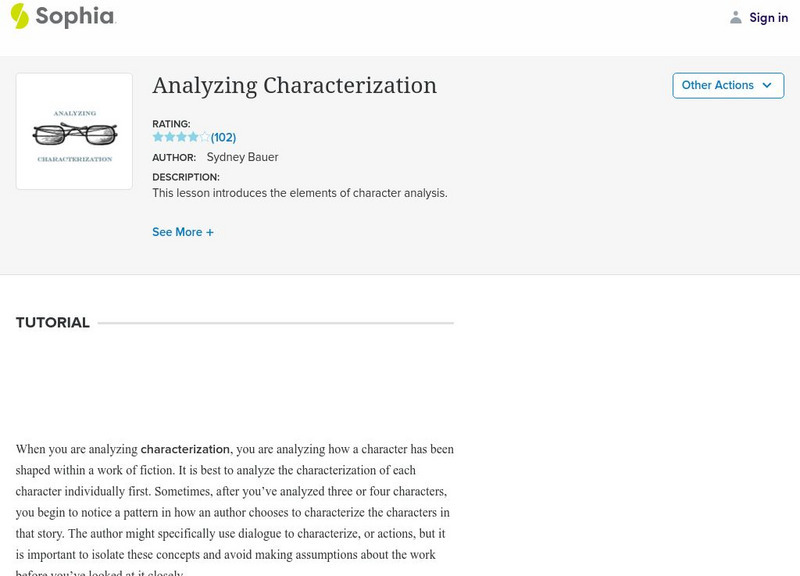


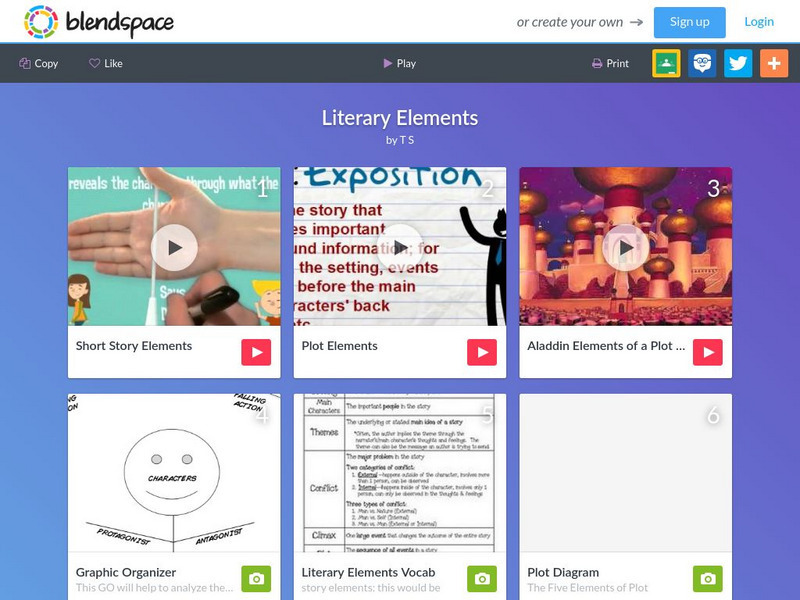




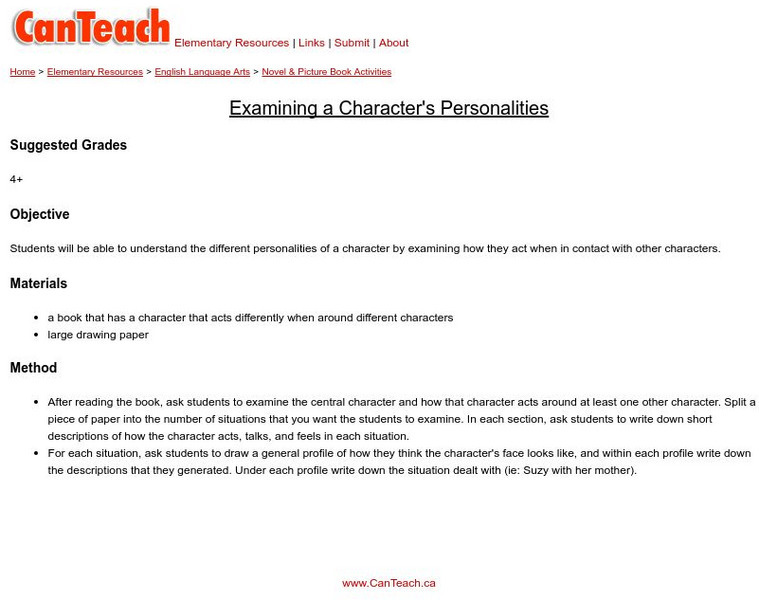

![Holt, Rinehart and Winston: Elements of Literature: Historical/biographical Analysis Chart [Pdf] Graphic Holt, Rinehart and Winston: Elements of Literature: Historical/biographical Analysis Chart [Pdf] Graphic](https://static.lp.lexp.cloud/images/attachment_defaults/resource/large/FPO-knovation.png)
![Holt, Rinehart and Winston: Elements of Literature: Evaluating Character and Plot in Literature [Pdf] Graphic Holt, Rinehart and Winston: Elements of Literature: Evaluating Character and Plot in Literature [Pdf] Graphic](http://lessonplanet.com/content/resources/thumbnails/410148/large/bwluav9tywdpy2symdiwmduymc0yotyymi0xdjnoywrjlmpwzw.jpg?1589985608)
